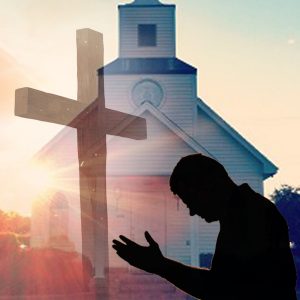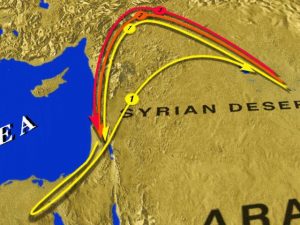
In Matthew chapter 2 we read the account of the wise men who came from the east to meet Jesus.
We must ask ourselves, who were these men, and why did they get invited to meet the Messiah?
The first thing we notice is that these wise men came from the east, most likely they were Gentiles from Arabia, this would have included modern day Saudi Arabia, Yemen, Oman, UAE and Iraq.
One of the clearest explanations for their place of origin would be the types of gifts they brought to Jesus as we read in verse 11 of Matthew 2. The Gold which these wise men brought was probably mined in the region of Ophir and Sheba, which is mentioned in 2 Kings 9 as the place where King Solomon obtained huge quantities of gold for his extravagant building projects. The gifts of Frankincense and Myrrh are also derived from trees that primarily grow in Southern Arabia. It is important to understand the origin of these wealthy travelers in order to understand that they were fulfilling the prophecy of Isaiah 60:1-6
So how does knowing this information about the wise men help us in answering the question, “what child is this?”
Firstly; both Jesus and the wise men came from a distant place to Bethlehem. The Wise men travelled from a distant country in the east, and Jesus as we know came from God the Father and took on human form as he became Emmanuel, God with us (see John 1:1-2, 9-12).
Secondly; one might be tempted to think that because of all the prophecies relating to the messiah being Jewish, it would mean that he only came for the Jews. However, with these wise men coming from the east, God clearly announced that Jesus came for all mankind.
Thirdly; these wise men were wealthy, but to say that Jesus came from a place of means, is probably the greatest understatement in history. If you read Revelation chapters 4 and 5, you will see a glimpse of the majesty and the incredible riches of heaven. Jesus was surrounded by wealth, power and majesty in heaven, and yet he humbled himself to come as a poor baby born to a poor couple in a humble stable. This child born in the manger is the Lord who created everything and owns everything.
And finally, the wise men were generous as they brought extravagant gifts for Jesus. Jesus himself came to bring a gift of unimaginable worth to all who would receive it. Jesus came from a position of wealth and he came with a gift, the ultimate gift of eternal life (see Galatians 1:3-4a, 1 John 3:16, John 14:27a, Philippians 4:13, Mark 10:45).
Have you ever wondered why the wise men came to Bethlehem?
The greater question is, how did these wise men know that the King of the Jews was to be born. We know that ancient eastern scholars were students of the natural sciences and in fact they came from a culture that valued the study of the stars and the planets. Thus, when they saw this strange star in the sky, they began digging to find out why it was there. To find out how they came to know about Jesus, you must go back nearly six centuries to the Babylonian exile of the southern kingdom of Israel in 587 B.C. After the exile had ended, some of the people of Judah remained in the eastern lands where they maintained their oral traditions and scriptures. They would have taken the tradition of telling the stories of the ancient scriptures to whoever would listen. These transplanted exiles would have told of the prophecies of Jeremiah, Daniel, and Isaiah about the coming Messiah the King of the Jews.
These wise men would have known of the ancient prophecies of the Messiah coming in the west. And when they saw the star, they came to meet this king. However simply knowing of an important birth happening hundreds of miles away probably wasn’t the real motivation for their coming to Bethlehem. I believe is the real reason the wise men visited Bethlehem was that God the Holy Spirit invited them and compelled them to meet Jesus.
Just as God invited, and prompted the wise men to come and see Jesus, so to, today, the Holy Spirit invites and compels people to come and meet Jesus.
One of the incorrect statements we often hear is, “I found Jesus”. Well the truth is that you didn’t find Jesus, he invited you to meet him.
When the wise men finally come to the house of Mary and Joseph, imagine Mary’s surprise when these wealthy, well dressed, upper class men come into her home and when they see the baby, they bow down and worship. These gentiles probably didn’t speak Aramaic or Hebrew, but they bow down and worship the king. They had been invited to witness the most important birth in all of history and unlike the rest of the people around them, they knew who deserved to be worshipped. The rest of the people in Bethlehem at that time did not recognize Jesus for who he was, and they never did.
These wise men were the first non-Jewish people to worship the Son of God, and just like you and me today, they were invited in. Because Jesus didn’t come only for the Jews, but he came for all nations for all people groups.
So, what about you? You have been invited to meet the King of Kings, the one born in Bethlehem, who brought the gift of eternal life to all mankind
Have you met Jesus? Have you worshipped Jesus? There is only one gift that we have to offer Jesus, and that is the gift of our lives, fully committing our lives to worship him and live for him.






